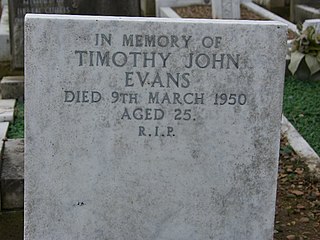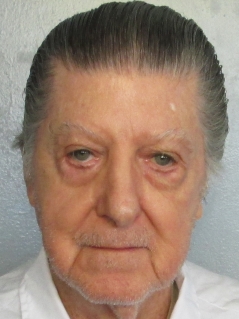Related Research Articles

In the United States, capital punishment is a legal penalty throughout the country at the federal level, in 27 states, and in American Samoa. It is also a legal penalty for some military offenses. Capital punishment has been abolished in 23 states and in the federal capital, Washington, D.C. It is usually applied for only the most serious crimes, such as aggravated murder. Although it is a legal penalty in 27 states, 20 states currently have the ability to execute death sentences, with the other seven, as well as the federal government, being subject to different types of moratoriums.

Joseph Paul Franklin was an American serial killer, white supremacist, and domestic terrorist who engaged in a murder spree spanning the late 1970s and early 1980s.

A miscarriage of justice occurs when an unfair outcome occurs in a criminal or civil proceeding, such as the conviction and punishment of a person for a crime they did not commit. Miscarriages are also known as wrongful convictions. Innocent people have sometimes ended up in prison for years before their conviction has eventually been overturned. They may be exonerated if new evidence comes to light or it is determined that the police or prosecutor committed some kind of misconduct at the original trial. In some jurisdictions this leads to the payment of compensation.
Herrera v. Collins, 506 U.S. 390 (1993), was a case in which the Supreme Court of the United States ruled by 6 votes to 3 that a claim of actual innocence does not entitle a petitioner to federal habeas corpus relief by way of the Eighth Amendment's ban on cruel and unusual punishment.

The rapes and murders of Julie and Robin Kerry occurred on April 5, 1991, on the Chain of Rocks Bridge over the Mississippi River in St. Louis, Missouri. The two sisters were raped and then murdered by a group of four males, who also attempted to murder the sisters' cousin.

Ruben Montoya Cantu was an American murderer who was executed for a murder committed when he was 17 years old. During the years following the conviction, the surviving victim, the co-defendant, the district attorney, and the jury forewoman have made public statements that cast doubt on Cantu's guilty verdict.

Capital punishment in Singapore is a legal penalty. Executions in Singapore are carried out by long drop hanging, and usually take place at dawn. Thirty-three offences—including murder, drug trafficking, terrorism, use of firearms and kidnapping—warrant the death penalty under Singapore law.

Potosi Correctional Center (PCC) is a Missouri Department of Corrections prison located in unincorporated Washington County, Missouri, near Mineral Point. The facility currently houses 800 death row, maximum security and high-risk male inmates.
Wrongful execution is a miscarriage of justice occurring when an innocent person is put to death by capital punishment. Cases of wrongful execution are cited as an argument by opponents of capital punishment, while proponents say that the argument of innocence concerns the credibility of the justice system as a whole and does not solely undermine the use of the death penalty.
Capital punishment is a legal punishment in Iran.

Ángel Nieves Díaz was a Puerto Rican convict and a suspected serial killer who was executed by lethal injection by Florida. Nieves, who had escaped from a prison in Puerto Rico while serving time for murder, was convicted of shooting and killing the manager of a strip club in Florida in 1979. He maintained his innocence until his death.
The debate over capital punishment in the United States existed as early as the colonial period. As of April 2022, it remains a legal penalty within 28 states, the federal government, and military criminal justice systems. The states of Colorado, Delaware, Illinois, Maryland, New Hampshire, Virginia, and Washington abolished the death penalty within the last decade alone.
Earl Washington Jr. is a former Virginia death-row inmate, who was fully exonerated of murder charges against him in 2000. He had been wrongfully convicted and sentenced to death in 1984 for the 1982 rape and murder of Rebecca Lyn Williams in Culpeper, Virginia. Washington has an IQ estimated at 69, which classifies him as intellectually disabled. He was coerced into confessing to the crime when arrested on an unrelated charge a year later. He narrowly escaped being executed in 1985 and 1994.
The Martinsville Seven were a group of seven African-American men from Martinsville, Virginia, who were all executed in 1951 by the state of Virginia after being convicted of raping a white woman. At the time of their arrest, all but one were between the ages of 18 and 23. They were quickly tried in six separate trials, and each was convicted and sentenced to death. It was the largest mass execution for rape that had been reported in the United States. On August 31, 2021, the Governor of Virginia pardoned the convictions of all seven men, 70 years after their deaths.
Felicia Gayle Picus was a former St. Louis Post-Dispatch reporter who was found stabbed to death in her St. Louis, Missouri home during the day on August 11, 1998.

Walter Leroy Moody Jr. was an American convicted murderer who was sentenced to death and executed in Alabama for the 1989 letter bomb murder of Robert S. Vance, a U.S. federal judge serving on the Court of Appeals for the 11th Circuit.

Robert Earl O'Neal Jr. was an American white supremacist and convicted murderer who was executed by the state of Missouri for the February 1984 murder of Arthur Dade, a 33-year-old black American man. O'Neal, who was serving a life sentence for the robbery and murder of 78-year-old Ralph Roscoe Sharick, stabbed Dade to death at the Missouri State Penitentiary. For the latter murder, O'Neal was sentenced to death and executed in 1995 at the Potosi Correctional Center via lethal injection. O'Neal is notable for being the only white person to be executed for killing a black person in the history of modern Missouri.

Amber McLaughlin was an American transgender woman executed in Missouri for the 2003 rape and murder of her ex-girlfriend, Beverly Guenther. At the time of the crime, McLaughlin was living as male; she transitioned from male to female while incarcerated. McLaughlin became the first openly transgender person to be executed in the United States. Her legal name remained her birth name, Scott A. McLaughlin, and she was identified as such in her death warrant and in prison records.
References
- ↑ "Larry Griffin". Archived from the original on January 11, 2003.
- ↑ Herbert, Bob (July 14, 2005). "Convicted, Executed, Not Guilty". The New York Times .
- ↑ Did Missouri execute an innocent man?. MSNBC (2005-07-12). Retrieved on 2007-11-20.
- ↑ "Humans make mistakes". The Economist . July 21, 2005. ISSN 0013-0613 . Retrieved February 7, 2024.
- ↑ "How overzealous prosecution and racial bias result in unjust death sentences in Missouri". KCUR - Kansas City news and NPR. November 27, 2022. Retrieved February 7, 2024.
- ↑ "Execution of an innocent?". St. Louis American . July 14, 2005. Retrieved February 7, 2024.
- ↑ L. Kirchmeier, Jeffrey (Winter 2006). "Dead Innocent: The Death Penalty Abolitionist Search for a Wrongful Execution". Tulsa Law Review . 42 (2). Retrieved February 7, 2024.
- ↑ Reasonable Doubts: Is the U.S. Executing Innocent People? (PDF) (Report). Equal Justice USA. October 26, 2000.
- ↑ "Convicted killer executed, but was he guilty?". NBC News. June 25, 2007. Retrieved February 7, 2024.
- ↑ Zernike, Kate (July 19, 2005). "Executed Man May Be Cleared in New Inquiry". The New York Times .
- ↑ "Missouri death sentence case gets another look". MSNBC . The Associated Press. August 5, 2005. Retrieved November 20, 2007.
- ↑ "Campaign to clear executed US man". BBC News . July 13, 2005. Retrieved February 7, 2024.
- ↑ Tribune, Chicago (July 13, 2007). "Report: Executed inmate was guilty". Chicago Tribune. Retrieved February 7, 2024.